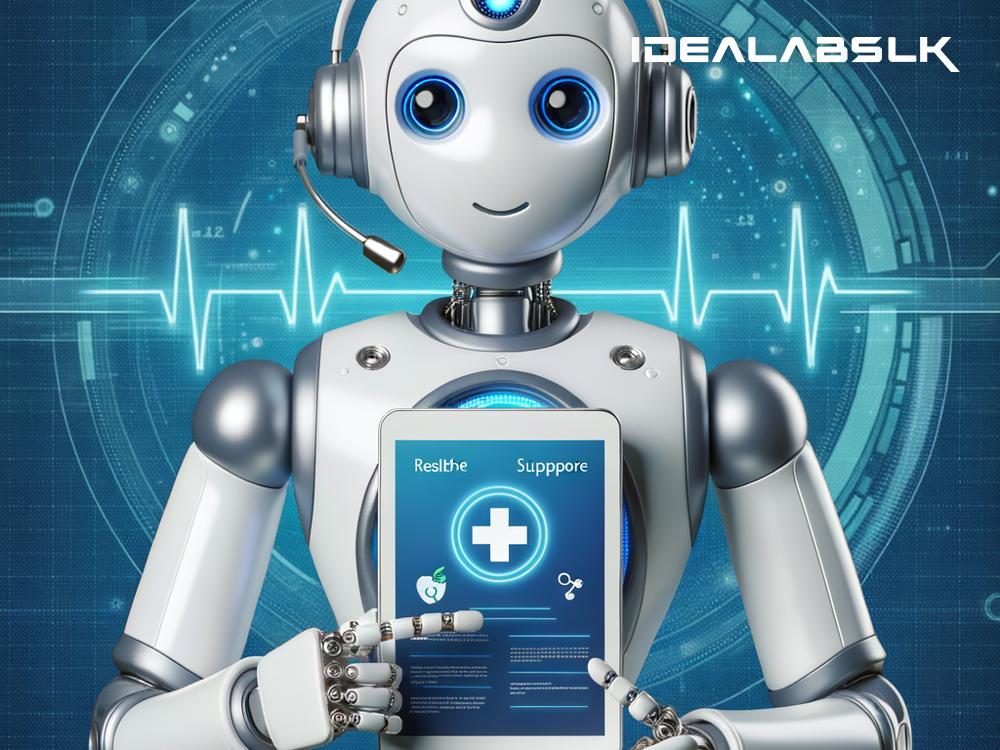The Benefits and Risks of Virtual Health Assistants: How AI is Enhancing Healthcare Customer Support
In the rapidly evolving world of healthcare, technology, especially Artificial Intelligence (AI), is playing a pivotal role in transforming how care is delivered and received. One of the fascinating advancements in this sector is the emergence of Virtual Health Assistants (VHAs). These AI-powered tools are changing the game in healthcare customer support, offering both immense benefits and certain risks. Let's dive into how these digital assistants are enhancing the healthcare experience for patients and what potential challenges they bring.
Benefits of Virtual Health Assistants
-
24/7 Availability: One of the most significant advantages of VHAs is their constant availability. Healthcare doesn’t adhere to a nine-to-five schedule - health issues can arise at any hour. VHAs are always on, providing immediate responses to patient inquiries, which can be especially comforting during off-hours when human support may not be readily available.
-
Personalized Care: Through the power of AI, VHAs can deliver personalized advice and support. They can analyze a user’s health data, previous interactions, and preferences to offer customized health information. This level of personalization can enhance patient engagement and encourage proactive health management.
-
Efficient Management of Routine Inquiries: VHAs can handle a multitude of routine questions, from appointment scheduling to medication reminders. By automating these tasks, VHAs free up healthcare professionals to focus on more complex patient care needs. This improves the efficiency of healthcare services and allows for better allocation of human resources.
-
Cost Reduction: Implementing VHAs can lead to significant cost savings for healthcare providers. By automating customer support and routine tasks, the need for extensive staff to manage such inquiries is reduced. These savings can then potentially be passed on to patients, making healthcare services more affordable.
-
Scalability: AI solutions like VHAs can easily handle increasing volumes of queries without the need for proportional increases in resources or staffing. This scalability makes them particularly valuable in situations where there is a sudden surge in demand, such as during a health crisis.
Risks of Virtual Health Assistants
While VHAs offer groundbreaking potential, there are several risks that need to be carefully managed:
-
Privacy and Security Concerns: As VHAs handle sensitive health information, there are legitimate concerns about data privacy and security. Ensuring that these digital assistants are compliant with health information privacy regulations and employ robust security measures is essential to protect patient data.
-
Accuracy of Information: VHAs rely on AI algorithms and pre-programmed information, which may not always provide accurate or suitable advice for every unique health situation. Incorrect information or misinterpretations could potentially lead to adverse health outcomes.
-
Lack of Human Empathy: Despite their advancements, VHAs cannot fully replicate the empathy and understanding that human interaction provides. In situations that require emotional support or nuanced understanding, the impersonal nature of VHAs could be a limitation.
-
Dependence and Overreliance: There’s a risk that patients might become overly reliant on VHAs, potentially neglecting the importance of in-person healthcare consultations. This overreliance could lead to delayed diagnosis and treatment of complex conditions.
Finding the Balance
The key to harnessing the benefits of VHAs while mitigating the risks lies in finding the right balance. It's crucial to view VHAs as supplements to human healthcare providers, not replacements. Implementing robust data protection measures, continuously updating and verifying the accuracy of information provided by VHAs, and promoting awareness among users about the limitations of these digital assistants are essential steps.
Incorporating human oversight to regularly review interactions and intervenes when necessary can also ensure that the use of VHAs aligns with the best interest of patient care. Furthermore, developing clear guidelines on when to seek human healthcare services can help prevent overreliance on virtual assistance.
Conclusion
Virtual Health Assistants are undeniably transforming healthcare customer support, offering numerous benefits from increased access to personalized care to significant cost reductions. However, embracing this technology comes with its risks, primarily concerning data security, the accuracy of information, and the potential for reduced human interaction. By thoughtfully integrating VHAs into healthcare systems and addressing these challenges head-on, we can leverage AI to enhance rather than replace the invaluable human touch in healthcare.

